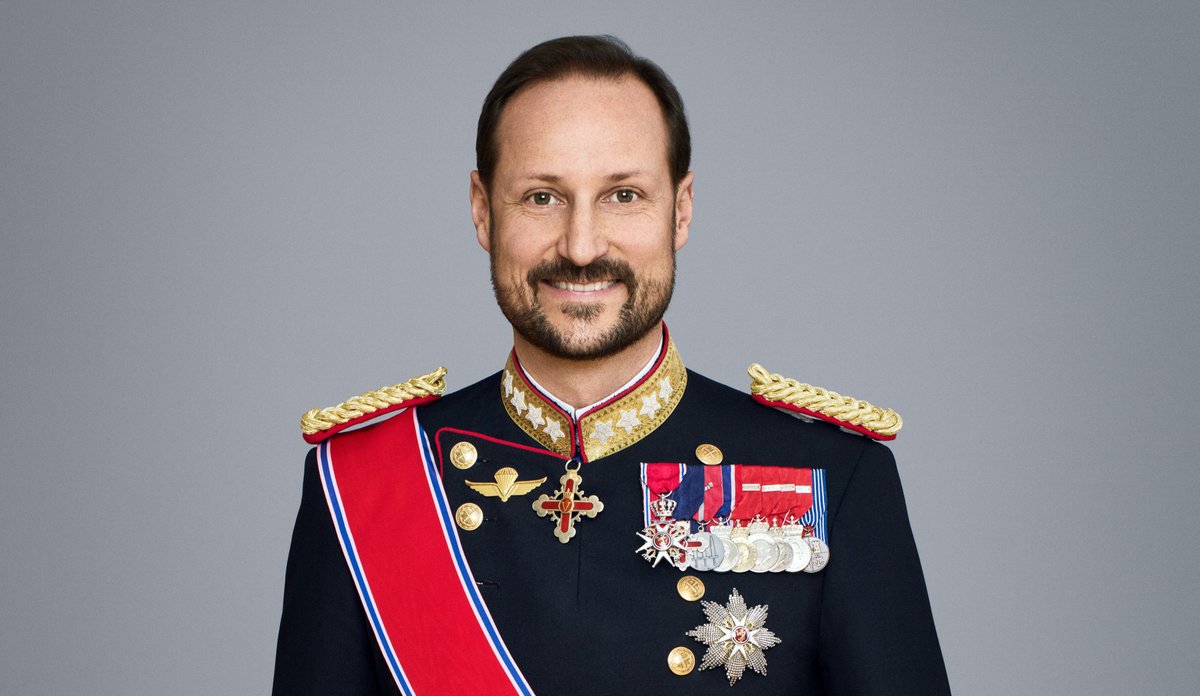
Symposium Opening
The Symposium will be opened by H.R.H. Crown Prince Haakon
Keynote Speakers

Christian Clauwers
Fine Art Photography
Ocean & Polar explorer | Photographer | Impact reporter (Belgium)
Talk: Using image to bridge the gap between science, education and policy
Christian Clauwers is a Belgian photographer, explorer, public speaker and author. His work
covers the polar regions and oceans, including some of the most remote islands on the
planet, focusing on documenting the vulnerable relation and conflict between man and
nature.
After studying Political Science at the University of Antwerp and Global Management at the
Antwerp Management School, Christian worked as a Communications Manager in the
Flemish Parliament. Following this, he decided to fully dedicate his life to inspire audiences
by capturing pristine nature and (indigenous) communities threatened by climate change.
Christian Clauwers has been on the frontline of climate change for over 9 years, exploring
both the North and South Pole several times. He sailed the five oceans and joined several
international scientific teams to document beauty, vulnerability and impact, caused by the
relationship between man and nature.
With multiple lectures and conferences (such as COP25, COP26 and COP27), Christian
inspires and shares his work with leaders, youth, NGO’s, businessmen and game-changers,
with the aim of increasing awareness. Christian believes in the power of image, showing
what is at stake, as well as the consequences of human footprints, by documenting,
witnessing, capturing…
He collaborates with the Belgian, French, Italian, Swedish and Norwegian governments on
multiple projects, all in the context of documenting climate impact and raising awareness
through photography. Besides multiple publications in quality media, organising exhibitions,
attending major international conferences and giving lectures, Christian collaborates with
scientific institutions, publishes articles and books with the purpose of engaging and
inspiring people, bridging the gap between science and policy.
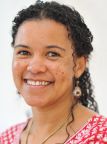
Christina Hicks Lancaster Environment Centre, Lancaster University, UK
Christina is an Environmental Social Scientist interested in the relationships individuals and societies form with nature; how these relationships shape people’s social, environmental, and health outcomes; and how they create sustainable livelihood choices. Christina is a professor within the Political Ecology group at Lancaster University’s Environment Centre. She gained her PhD in 2013 from the ARC Centre of Excellence for Coral Reef Studies, James Cook University; after which she held an Early Career Social Science Fellowship at the Center for Ocean Solutions, Stanford University. Christina main source of research funding conmes from an ERC Starting Grant: FAIRFISH, and she was awarded the 2019 Philip Leverhulme Prize for Geography. Christina’s work is global with particular field sites on the east and west coasts of Africa and in the Pacific.
More...
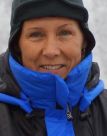
Randi Ingvaldsen
Institute of Marine Research, Bergen, Norway
Talk: Atlantification and borealization in the Barents Sea and adjacent Arctic Ocean
Dr. Randi Ingvaldsen is a senior scientist at Institute of Marine Research in Bergen, Norway working with polar oceanography, climate variability and change, and climate impacts on single species and marine ecosystems. Focus areas are the Barents Sea and the adjacent Arctic Ocean. She has co-authored >60 peer-reviewed publications and 7 book-chapters focusing on atlantification and borealization of the Arctic regions, as well as bio-physical interactions focusing on zooplankton, fish, shrimp and benthos. Ingvaldsen is also involved in integrated ecosystem assessments and advice, including the central Arctic Ocean fisheries agreement that entered into force in 2021.
Ingvaldsen earned her PhD in 2003 in physical oceanography at Geophysical Institute, University of Bergen. She has been employed at Institute of Marine Research throughout the working career and was also professor at UiT The Arctic University of Tromsø during 2016-2022. She has been Principal Investigator in >30 international and national research projects, and lead or participated in numerous interdisciplinary oceanographic sea cruises including in ice-covered waters. Ingvaldsen is Principal Investigator for the long-term monitoring of the marine climate of the Barents Sea and is leading the “The living Barents Sea” as part of the Nansen LEGACY project. This large, Norwegian project focus on building critical knowledge of how organisms in the northern Barents Sea ecosystem respond to current and changing environmental conditions on the species and community level.
Academic Articles
Plenary Speakers
Building Collaborations to Identify and Address Knowledge and Technology Gaps with the Goal of Promoting Resilient Aquaculture in the Face of Climate Change
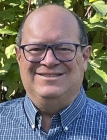
Michael Rust Hubbs Seaworld Research Institute, San Diego CA, USA
Aquaculture Special Session Plenary Speaker
After more than a decade as NOAA’s national Aquaculture Science Advisor, and four years as the ICES Aquaculture Steering Group Chair, Dr. Michael Rust is now a Senior Research Fellow at Hubbs-SeaWorld Research Institute in San Diego, California. In this role, Dr. Rust works with numerous collogues within and outside of the Institute to provide the scientific information and technology needed to create viable, climate ready, sustainable marine aquaculture industries. Dr. Rust has fisheries and aquaculture research and development experience both domestically and internationally, in countries including the US, Philippines, Haiti, Norway, and Canada. He has degrees from the University of Colorado (environmental biology -- B.S.), University of California, Davis (animal science -- M.S. and international agricultural development -- M.S.) and the University of Washington (fisheries -- Ph.D.).
Smart fishing for climate change mitigation and adaptation

Antonello Sala Italian National Research Council, Italy
Dr. Antonello Sala is a senior fisheries scientist ("Director of Research" highest level in the Italian system) with more than 30 years of experience studying the wider ecosystem effects of fishing on the marine environment at the National Research Council (CNR, Italy). Expert knowledge of physical and biological impacts in the marine environment produced by human activities, as well as impacts and operations of global fisheries, including marine litter, efficiency and selectivity of fishing gears, performance of fishing gears using underwater instrumentation, fishing gear design and modelling, and energy saving measures in fisheries operations. Lead scientist in numerous international research projects (>20) and national projects (>30). Chief scientist in more than 40 interdisciplinary oceanographic sea cruises. Since 2020, fishing technology consultant (COF.REG) in the Fishing Technology and Operations team (NFIFO) of the Food and Agriculture Organization of the United Nations (FAO, Rome). Since 2014, external statistical expert for the European Fisheries Control Agency (EFCA, Spain). In 2019, programme officer providing scientific advice on the implementation of the Common Fisheries Policies and Fisheries Dependent Information at the European Commission DG Joint Research Centre (JRC, Italy). From 2020, chairperson of the ICES/FAO Working Group on Fishing Technology and Fish Behaviour (WGFTFB). From 2010 to 2019, member and vice-chair (in 2018-2019) of the EU-STECF Committee (European Scientific, Technical and Economic Committee for Fisheries). Author of numerous peer-reviewed publications (90) and holder of 3 pending patents. Author's h-index in Scopus and Web of Science: 25 (Google scholar: 29, with 3472 citations).
Improving decision-making in response to change in marine-dependent coastal communities using transdisciplinary approaches

Astrid Jarre University of Cape Town, South Africa
Astrid Jarre, Marine and Antarctic Research centre for Innovation and Sustainability (MARIS), University of Cape Town, South Africa
Astrid Jarre is has held the South African
Research Chair in Marine Ecology and Fisheries for the past 15 years, and currently serves as MARIS’ deputy director. A marine systems ecologist by background and with interest in strong inter- and transdisciplinarity, she has had the privilege to lead a research group concerned with the sustainability of marine social-ecological systems - more specifically with developing methodology for integrated approaches to managing human interactions with the oceans under global change. Based on the geographical position of Cape Town at the southwestern tip of Africa, her group’s research has focused on the Benguela Current Large Marine Ecosystem, but has also included other large upwelling and temperate shelf systems.
Astrid’s career started at what is now the World Fish Centre (then ICLARM) in the late 1980s, and later included postdoctoral research fellowships at the Alfred Wegener Institute for Polar and Marine Research and the (then) Institute for Marine Science at the University of Kiel, both in Germany. She subsequently moved into a permanent position as senior scientist at the (then) Danish Institute for Fisheries Research in the mid-1990s, working with Poul Degnbol, with whom she shared the interest in bringing natural sciences, social sciences and humanities disciplines together in support of modern fisheries management. During this time, Astrid chaired one of ICES’ science committees and was an ex-officio member of the (then) advisory committees for Fisheries Management and Marine Ecology. Astrid also served as member of the Scientific Steering Committee of
GLOBEC,
the IGBP/UNESCO-IOC Global Ocean Ecosystem Dynamics Programme, which preceded Future Earth’s IMBER She keeps in touch with ICES through its Strategic Initiative on the Human Dimension (SIHD).
The research group at UCT, now co-led by Astrid and Prof Lynne J. Shannon, currently partners in three EU-Horizon 2020 “All Atlantic Ocean Research Flagship” projects – TRIATLAS, Mission Atlantic and AtlantEco – as well as the EXEBUS project funded by the Belmont Forum and UKRI-GCRC’s “One Ocean Hub”.
Measuring and predicting responses of marine social-ecological systems to climate extremes

Renato Salvatteci Kiel University, Germany
Dr. Renato Salvatteci has worked almost 20 years on reconstructing past changes in fish population variability at multiple time scales using an interdisciplinary approach, including paleoceanography, biogeochemistry and fish ecology. He is particularly interested in the local and remote factors driving changes in productivity and sub-surface deoxygenation in Eastern Boundary Upwelling Systems during the last 140 000 years, and the respective response of small pelagic fishes to past changes in oceanic and climatic conditions at multi-decadal to millennial time scales. His core issue is to provide scientific evidence to develop an adaptive local fishery management under globally warmer ocean conditions. Renato has studied fisheries engineering in Lima, Peru, and marine ecology in Mexico. He earned his PhD in Environmental Sciences at the Université Paris VI, France, and was then affiliated as an Alexander von Humboldt post-doctoral fellow to the Institute of Geosciences at Kiel University, Germany. After several years as a post-doctoral researcher in the SFB 754 project “Climate – Biogeochemistry Interactions in the Tropical Ocean”, Renato is now the principal investigator of the second phase of the Humboldt Tipping Points project at the Center for Ocean and Society at Kiel University.
Deep-Sea responses to, and solutions for, Climate Change

Roberto Danovaro Polytechnic University of the Marches, Ancona, Italy
Roberto Danovaro is Professor of Marine Ecology at the Polytechnic University of Marche. President of the Stazione Zoologica “Anton Dohrn” from 2013 to 2022. Past-president of the Italian Society of Ecology, of the Italian Society of Limnology and Oceanography and of the European Federation of Scientific Societies. President of the Scientific Council of WWF Italy. Member of several international panels (IUCN, UNEP). Member of the EU Academy of Science and of the Academia Europaea (London). He received the Prize BMC Biology (London, 2010), the Award of French Society of Oceanography (2011), and the ENI Award “Protection of the Environment” (2013). According to ExpertScape is one of the most influential World Scientist in the Category “Ocean and Seas” and “Marine Biology”. Authors of >400 scientific articles and 3 books, his research interests are focused on the ecology of deep-sea ecosystems and the impacts on global climate change.
Beyond species on the move: emerging climate change impacts on the spatial dynamics of marine species, from detecting to forecasting and projecting
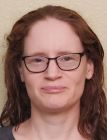
Barbara Muhling NOAA and University of California Santa Cruz, USA
Barbara Muhling is a Project Scientist at the University of California – Santa Cruz, based at the NOAA Southwest Fisheries Science Center in La Jolla, CA. She completed her PhD in Perth, Australia, and did her postdoc on the spawning dynamics of tunas in the Gulf of Mexico and Caribbean Sea, through the NOAA Southeast Fisheries Science Center in Miami, Florida. Her current research focuses on the distribution and ecology of pelagic fishes in the California Current System, and the broader North Pacific. She is particularly interested in how these species may respond to environmental variability and climate change, as well as the potential impacts of shifting species distributions on fisheries and fishing communities. She is a member of the CLIOTOP Scientific Steering Committee, and has co-chaired working groups on climate change and species distributions through PICES and NOAA.
Ocean Deoxygenation: Physical, Biogeochemical and Ecological Research Advances and Future Needs

Laure Resplandy The Resplandy Research Group, Princeton University, USA
Laure Resplandy is an assistant professor in the Geosciences department and the High Meadows Environmental Institute at Princeton University. Resplandy did her undergraduate studies at Ecole Normale Supérieure in Paris and received a PhD in Oceanography from Sorbonne Universités (Paris, France) in 2010. She arrived at Princeton in February 2017 after working as a postdoctorate researcher in leading oceanographic and climate sciences institutions, including the National Oceanography Centre in the UK, the French Climate and Environment Sciences Laboratory and the Scripps Institution of Oceanography in San Diego. Resplandy received several awards, including the Sloan Foundation Research Fellowship and the NSF CAREER award. Resplandy is a biogeochemical oceanographer and climate scientist. Her goals are to understand how climate and ocean dynamics influence marine ecosystems and global carbon and oxygen cycles, and how these changes can in turn impact the climate itself. Her group designs and develops cutting edge numerical models, from high-resolution ocean models to global Earth system models, and combines them with statistical tools to interpret the variability observed from space and in-situ.
More...
Cumulative anthropogenic impacts on key Arctic species
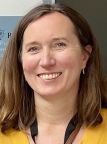
Katrine Borgå Department of Biosciences, Aquatic biology and Toxicology (AQUA), University of Oslo, Norway
Katrine Borgå is Professor at the University of Oslo, Norway, focusing on stress ecology and how multiple stressors, including climate change and pollution, affect ecosystems especially Arctic marine ecosystems.
Her research career in ecotoxicology began as one of the first biology students at the University Studies on Svalbard almost 30 years back, where she developed an interest in understanding the movement of energy and pollutants across and within ecosystems. After research stays in Italy and the USA, she returned to the University of Oslo as a Professor in Toxicology, leading a research team studying the combined impacts of multiple stressors on organisms. In particular, she is interested in how climate change and environmental conditions affect accumulation and toxicity of pollutants in non-target organisms, from marine copepods and killer whales, to terrestrial springtails and bumblebees, with particular focus on responses in life history traits for extrapolation to population level effects.
Borgå is PI of several international research projects, lead national network of marine pollution related to Horizon Europe, has served on panels for UNEP Stockholm convention Global Monitoring Plan, board member on program for marine science of the Research Council of Norway, expert member on pollutants and climate change for the Arctic Monitoring and Assessment Programme, and lead the task on pollution impacts in the large Norwegian research project Nansen Legacy in the Arctic Barents Sea.
Borgå has published extensively on the subject, with a focus on the influence of global climate change on the accumulation and toxicity of pollutants in Arctic food webs, and the effects on key Arctic species. She is a frequent speaker at international conferences and is excited to share her expertise at the upcoming Climate Change Symposium ECCWO5.
Using Management Strategy Evaluation to establish robust fishery management in a changing ocean

Laura Blamey CSIRO, Brisbane, Australia
Dr. Laura Blamey is a quantitative marine ecologist at CSIRO based in Brisbane, Australia. She completed her PhD and a Postdoctoral fellowship at the University of Cape Town, South Africa before being awarded a prestigious NRF Research Career Advancement fellowship. She then went on to work at the University of Seychelles as a Senior Lecturer, and in 2019 she moved to Australia, where she took up her current role with CSIRO. Laura has experience with a range of modelling techniques as well as field work experience in both temperate and tropical ecosystems. She is interested in coastal socio-ecological systems and fisheries and her research integrates field data, ecosystem modelling and local knowledge to help better understand changes in these systems. Her research has involved modelling changes in key trophic species in reef ecosystems; detection of climate regime shifts and links to ecosystem change; and more recently, the inclusion of environmental variables into population models to dynamically quantify the impacts of a changing environment and assess robustness of harvest strategies to these changes, through use of management strategy evaluation.
Ocean Acidification Research for Sustainability
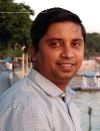
Punyasloke Bhadury Indian Institute of Science Education and Research Kolkata (IISERs), West Bengal, India
Punyasloke Bhadury is a Professor of Biological Sciences and also leads the Centre for Excellence in Blue Economy at the Indian Institute of Science Education and Research Kolkata in India. Punyasloke did his M.Sc. from Heriot Watt University (Edinburgh) followed by a PhD in marine microbial ecology from Plymouth Marine Laboratory and University of Plymouth in the United Kingdom. Subsequently, he did his postdoctoral research with Bess Ward at Princeton University, USA. His research interests encompass understanding how coastal oceans shape biological complexity and functional consequences on regional carbon and nitrogen fluxes, quantifying long-term consequences on marine bioresources and blue economy in a changing climate as well as addressing sustainability of coastal oceans of South Asia through sharing of knowledge (policy) and innovations. He leads the South Asia Regional Hub on Ocean Acidification (SAROA), a regional hub of GOA-ON. He is an Editor of a number of peer-reviewed international journals including iScience, Geoscience Letters, PeerJ and Ecological Solutions & Evidence. He is presently co-editing a special issue 'Sustainable Oceans in a Changing Climate' as part of iScience.
SESSIONS INVITED SPEAKERS
Marine spatial management supporting climate change adaptation and mitigation

Lodewijk Abspoel Ministry of Infrastructure and Water Management, Netherlands
Lodewijk Abspoel is a senior policy advisor for European Integrated Maritime Policy, including Ocean Governance and Maritime Spatial Planning (MSP) at the Dutch coordinating ministry for the North Sea since 2010. He was involved in drafting the EU MSP Directive (89/2014 EU) and project leader of the Dutch North Sea 2050 Spatial Agenda. He has since been involved in the various projects to optimize and future proofing MSP, including work on land-sea interactions, cross-border cooperation, and emerging topics in MSP. Both in the North Sea and beyond.
Currently Lodewijk is leading the Greater North Sea Initiative project. The Netherlands’s government has started this initiative to jointly explore a new governance approach for marine/maritime spatial planning & development. The initiative aims to bring all North Sea(s) countries and partners on board around a holistic agenda which can help deliver the 2030 and 2050 sustainability targets, the European Green Deal objectives for renewable energies, biodiversity (restoration) and the transformation to the truly sustainable blue economy
Lodewijk initiated the development of the MSP Challenge, aiming to prototype a Digital Twin of the sea. The MSP Challenge board game, used in MSPglobal trainings by the Intergovernmental Oceanic Commission of UNESCO, he designed in his workshop at home, and serves to bring together the oceans’ and coastal communities, scholars, civil servants and politicians.
In 2020 Lodewijk was guest editor of the special on Maritime Spatial Planning of the Journal of Ocean Technology (JOT), a scientific periodical published by the Fisheries and Marine Institute of Memorial University of Newfoundland Canada.
Publication: Communicating Maritime Spatial Planning: The MSP Challenge approach
Lodewijk Abspoel, et al., Marine Policy, https://doi.org/10.1016/j.marpol.2019.02.057

William Cheung Institute for the Oceans and Fisheries, The University of British Columbia, BC, Canada
Dr. William Cheung is a Professor and Director of the Institute for the Oceans and Fisheries, the University of British Columbia. He is also a Canada Research Chair in Ocean Sustainability and Global Change. He is an international leader in developing and using scenarios and models of biodiversity and ecosystem services to understand the responses and vulnerabilities of marine human-natural systems to global change. His work addresses policy-relevant research questions and cuts across multiple disciplines, from oceanography to ecology, economics and social sciences. His research ranges from local to global scales.
He is the Principal Investigator of the Changing Ocean Research Unit at UBC. He served as Director of Science for the Nippon Foundation Nereus Program, a nine-year international program, which focuses on key threats to ocean sustainability with the goal of predicting what the world’s future oceans will look like under global change. William is actively involved in international and regional initiatives that bridge science and policy. For example, he served as Coordinating Lead Author for the Assessment Reports of the Intergovernmental Panel on Climate Change (IPCC) and the Intergovernmental Platform on Biodiversity and Ecosystem Services (IPBES). He serves as Associate Editor for Global Change Biology and Ecological Society of America’s Frontier in Ecology and the Environment.
William obtained his BSc and M.Phil. from the University of Hong Kong. He completed his PhD in Resource Management and Environmental Studies at UBC. From 2009 to 2011, he was Lecturer in Marine Ecosystem Services in the University of East Anglia.
Smart fishing for climate change mitigation and adaptation
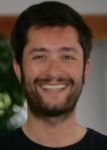
Carlos Groba Marine Instruments S.A, Spain
Dr. Groba is R&D director at Marine Instruments S.A, focused mainly on IT with a special interest in artificial intelligence, where he got his PhD solving dynamic optimization problems.
He has been working at Marine Instruments for more than 17 years. During this time, he has managed many different projects, with an emphasis on determining how technology can be applied to fishing products, like satellite buoys for the tuna fishing industry, and with the aim of reducing the gap between academia and industry, reaching suitable solutions that help increase the sustainability of the fishing sector.
Assessing climate change vulnerability of marine and coastal areas and associated communities
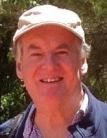
Jon Day James Cook University, Australia
Jon Day was an Australian protected area planner and manager for 39 years, 28 of which were in the Great Barrier Reef Marine Park (GBRMPA). In 1998 he was appointed as a GBRMPA Director and for the following 16 years was variously responsible for GBR-wide matters including biodiversity conservation, park planning, World Heritage and other heritage matters, and commencing the first 5-yearly GBR Outlook Report. Jon’s career highlight was his leadership role in the Representative Areas Program (RAP), the major rezoning program for the entire GBR that occurred between 1999-2003. RAP is today widely considered ‘best practice’, receiving numerous national/international awards. Jon’s World Heritage (WH) experience included attending eleven WH Committee meetings as an Australian government official (1998-2013) and he was appointed as one of three experts comprising Australia’s formal delegation during Australia’s four-year term on the WH Committee (2008-11). Jon's expertise in this area has been instrumental in his co-development of the Climate Vulnerability Index (CVI) to assess the climate vulnerability of World Heritage properties (cvi-heritage.org) and other areas of significance. Jon retired from GBRMPA in 2014 and completed a post-career PhD at James Cook University, where he is currently an Adjunct Senior Research Fellow.
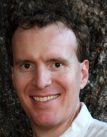
Scott Heron James Cook University, Australia
Scott Heron is an environmental physicist with focus on linkages between physical oceanography, natural biology and human communities in coastal and near-shore zones. He has a keen interest in the effects of climate change effects on natural and cultural heritage, and has co-developed the Climate Vulnerability Index (CVI) to assess the climate vulnerability of World Heritage properties (cvi-heritage.org). This work involves collaboration with UNESCO World Heritage Centre and its advisory bodies, as well as several international partners. The CVI is also being extended for use with First Nations groups, co-developed with Yuku Baja Muliku (northeastern Australia), recently announced as a winner of the 2022 EarthShot prize. Scott holds the position of Associate Professor in Physics at James Cook University, where his research lab studies coral bleaching and disease, reef resilience, seagrass impacts and conservation management, within the context of climate change.
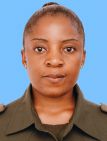
Mercy Mbogelah Ruins of Kilwa Kisiwani and Ruins of Songo Mnara World Heritage Site, Tanzania
Mercy Mbogelah is the site Manager of Ruins of Kilwa Kisiwani and Ruins of Songo Mnara World Heritage Site. She holds a Bachelor on history and archaeology and a master in tourism and management planning. She is currently working on conserving and protecting the archaeological site of Kilwa Kisiwani. She has been working with Climate Heritage on the Edge program (Google), the Climate Heritage Network and CVI (Climate Vulnerability Index Africa) to develop climate change adaptation measures for Kilwa Kisiwani. She is also one of the leader of the Interim Committee of African Site Managers Network.
Measuring and predicting responses of marine social-ecological systems to climate extremes
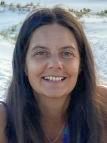
Regina R. Rodrigues Dept. of Oceanography, Federal University of Santa Catarina, Brazil
Regina R. Rodrigues is an Associate Professor of Physical Oceanography and Climate with a Doctor of Philosophy (PhD) in Physical Oceanography from the Graduate School of Oceanography, University of Rhode Island, USA. Her research interests include understanding how tropical ocean basins interact and affect the extra-tropics leading to extreme events, using observations and modelling. In recognition of her expertise in the dynamics and variability of the tropical and South Atlantic, she co-chairs the World Climate Research Program (WCRP) Atlantic Region Panel and is a member of the SSG of the international program “Prediction and Research Moored Array in the Tropical Atlantic”. Recently, her research focuses on understanding compound extreme events of drought, land and marine heatwaves, as well extremes of high acidity and low productivity in the ocean. She is involved in several international activities with the mandate of increasing diversity and representation from the Global South. She is the co-chair of the WCRP Lighthouse Activity “My Climate Risk”, with the primary objective of developing a bottom-up framework to construct climate information involving local communities. She served as review editor of IPCC-SRCCL Chapter 7 and is currently a member of the editorial board of Nature’s journal Communication Earth & Environment. Twitter
Deep-Sea responses to, and solutions for, Climate Change

Natalya Gallo Dept. of Biological Sciences, University of Bergen and Bjerknes Center for Climate Research, Norway
Natalya Gallo is a postdoctoral scholar in the Department of Biological Sciences at the University of Bergen and an affiliate of the Bjerknes Centre for Climate Research. She currently studies the effects of deoxygenation and acidification on deep-sea pelagic and demersal communities in western Norwegian fjords. Prior to arriving in Bergen, she studied at the Scripps Institution of Oceanography and her Ph.D. focused on how oxygen gradients in deep-sea ecosystems such as oxygen minimum zones affect the community ecology of demersal fishes. At Scripps, she was a member of the Center of Marine Biodiversity and Conservation and an NSF IGERT Scholar in Global Change, Marine Ecosystems, and Society. After receiving her Ph.D., she worked as a quantitative fisheries and ecology postdoc with the CalCOFI ecosystem monitoring program at Scripps and the NOAA Southwest Fisheries Science Center. As a seagoing scientist, she has spent over 100 days at sea collecting data on deep-sea communities on the U.S. West Coast, the Gulf of California, Costa Rica, and western Norway. She is passionate about the science-policy interface and the role scientists can play in informing sustainable ecosystem management strategies for deep-sea ecosystems. She is a member of the Early Career Ocean Professionals network of the UN Decade of Ocean Science for Sustainable Development, and the Deep Ocean Stewardship Initiative Climate Change working group.
Advances in coupling regional climate and social-ecological models to improve climate-ready ecosystem management

Ryan Heneghan Queensland University of Technology, Australia
Ryan Heneghan is a Lecturer in Mathematical Ecology at Queensland University of Technology, and a coordinator of the Fisheries and marine ecosystem Model Intercomparison Project. He completed his PhD in 2019 at the University of Queensland developing the first global marine ecosystem model that resolved multiple zooplankton functional traits. Afterwards, he spent 2 years in Barcelona identifying critical drivers of structural uncertainty in global marine ecosystem models. Ryan’s research uses quantitative modelling to uncover fundamental processes that structure marine ecosystems, from the Great Barrier Reef to the global ocean. He uses these quantitative approaches to assess the impacts of climate change, human demand, and management strategies on marine ecosystems.
Transitioning from Vulnerable to Resilient and Viable Fisheries Social-Ecological Systems

Katherine Mills Gulf of Maine Research Institute (GMRI), USA
Dr. Katherine Mills is a research scientist at the Gulf of Maine Research Institute in Portland, Maine. She earned her Ph.D. in Natural Resources at Cornell University. As a quantitative fisheries ecologist, Kathy studies marine ecosystem changes and fish-ecosystem-fishery relationships with a focus on the Gulf of Maine and Northeast US Shelf regions. Specifically, her research investigates (1) how physical and ecosystem conditions are changing; (2) how these changes affect fish populations, biological communities, and marine fisheries; and (3) how fisheries and fishing communities can effectively respond.
Much of her work is interdisciplinary, seeking to understand and inform management of fisheries as coupled social-ecological systems. This research integrates climate, ecological, social and economic information to link changes in the ecosystem to societal outcomes. Climate adaptation within marine fisheries has become a major recent focus, with emphases on assessing vulnerabilities, evaluating adaptation strategies, and providing new forms of information to support forward-looking planning by fishery participants, fishing communities and fishery managers. She is currently leading a global working group on Climate Resilient Fisheries to develop information, approaches, and tools for assessing and enhancing resilience to climate impacts in marine fisheries. This work will be continued and advanced at global, regional, and local scales through a UN Ocean Decade program she leads—Fisheries Strategies for Changing Oceans and Resilient Ecosystems by 2030 (FishSCORE). In addition, she is the lead author for the ‘Oceans and Marine Resources’ chapter of the US National Climate Assessment and serves as a chair of the ICES-PICES Strategic Initiative on Climate Change Impacts on Marine Ecosystems (SICCME).

Jenia Mukherjee Dept. of Humanities and Social Sciences, Indian Institute of Technology Kharagpur, India
Jenia Mukherjee is an Assistant Professor at the Department of Humanities and Social Sciences in the Indian Institute of Technology Kharagpur. She is investigating several large-scale international projects, funded by the European Union, ICHR-AHRC and SSHRC (Canada), focusing on coastal and river island livelihoods. She is the member of the five-member global committee and the only Indian representative for the Association for East Asian Environmental History (AEAEH). Jenia has received prestigious awards including the DAAD Grant (2022), Nippon Foundation Fellowship (2021), Australian Leadership Awards Fellowship (2010, 2015) and the UNESCO World Social Science Fellowship (2013). She was conferred the Carson Writing Fellowship (2018-19) by the Rachel Carson Center for Environment and Society, Munich (Germany) for executing her book project Blue Infrastructures: Natural History, Political Ecology and Urban Development in Kolkata (https://link.springer.com/book/10.1007/978-981-15-3951-0).
Beyond species on the move: emerging climate change impacts on the spatial dynamics of marine species, from detecting to forecasting and projecting
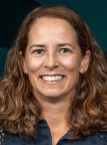
Lisa Kerr Gulf of Maine Research Institute (GMRI), USA
Dr. Lisa Kerr is an Associate Professor in the School of Marine Science at the University of Maine and based at the Gulf of Maine Research Institute. She is broadly interested in research that informs progress toward sustainable management of marine fisheries and ecosystems as a whole. Core objectives underlying her work include: 1) understanding the influence of climate, harvest, and management on fishery resources, 2) advancing the study of fish population structure and its implications to resilience, and 3) applying management strategy evaluation toward improved stock assessment and management. A major goal of her lab’s current work is to bring climate information to bear on fishery stock assessment and management processes. She regularly advises on regional, national, and international fisheries management issues. She earned her Doctor of Philosophy in Marine, Estuarine, & Environmental Sciences from the University of Maryland, Master of Science from Moss Landing Marine Laboratories- California State University, and a Bachelor of Science from the Tufts University.
Ocean Deoxygenation: Physical, Biogeochemical and Ecological Research Advances and Future Needs
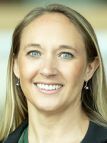
Maggie Johnson King Abdullah University of Science and Technology (KAUST), Saudi Arabia
Maggie Johnson is an Assistant Professor of Marine Science at King Abdullah University of Science and Technology (KAUST). After completing postdoctoral fellowships with the Smithsonian Institution and Woods Hole Oceanographic Institution, she joined the Red Sea Research Center where she is developing a research group focused on Global Change Ecology in marine habitats. Maggie studies coral reefs across the globe, from the central tropical Pacific to Caribbean Panama and the Red Sea, and seeks to understand what role humans are playing in the rapid degradation of these valuable ecosystems. She uses a combination of field and laboratory-based approaches to 1) evaluate and monitor the structure and function of coral reef ecosystems, 2) quantify inherent natural heterogeneity in key environmental parameters including temperature, dissolved oxygen, and pH, 3) explore the implications of environmental variability for ecophysiology of coral reef primary producers, 4) and determine the implications of local and global environmental change for these foundational coral reef taxa. Through her work in Caribbean Panama, she began exploring the role of deoxygenation in coral reef decline. Maggie continues her deoxygenation research in the field and lab, and is focused on identifying how foundational coral reef taxa are impacted by acute and persistent declines in dissolved oxygen, in combination with other co-occurring environmental stressors.
More...
Improving pathways for delivery of multi-disciplinary ocean observations into marine assessments across multiple scales
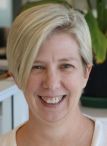
Michelle Heupel Integrated Marine Observing System (IMOS), Australia
Dr. Michelle Heupel is the Director of Australia’s Integrated Marine Observing System (IMOS). In this role she leads Australia’s core ocean observing efforts, including over 60 national-scale sub-Facilities ranging from shelf moorings, Argo floats, and ocean gliders to animal tagging and more. IMOS was established in 2006 as a consortium of Australia’s premier marine research institutions and is funded by the Australian Government. The IMOS model includes research, government and industry partnerships to deliver the program. Prior to joining IMOS, Michelle was a successful research scientist with over 25 years’ experience working on ecology, conservation and management of sharks and fish. She has published over 200 peer-reviewed scientific publications.

Adam Martiny University of California, USA
Adam Martiny is a professor at the University of California, Irvine. Martiny did his undergraduate and graduate studies at the Technical University of Denmark and postdoctoral training at MIT with Penny Chisholm. His research aims at understanding how drivers of phytoplankton biodiversity and biogeochemistry in the context of a changing ocean. Martiny is also the lead coordinator of Bio-GO-SHIP which is supported by NOAA, NASA and NSF. Bio-GO-SHIP is an international collaboration to quantify, understand, and predict the distribution and biogeochemical role of pelagic plankton communities. This will be achieved through systematic, high-quality, and calibrated sampling of ‘omics, plankton imaging, particle chemistry, and optical techniques as operational oceanographic tools. Integration with regular GO-SHIP measurements and their analyses of the physical and chemical environment will allow us to understand (and eventually predict) how plankton communities respond to ocean changes and how biological processes feeds back on carbon, oxygen, and nutrient cycles.
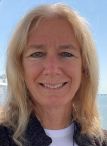
Patricia Miloslavich Scientific Committee on Oceanic Research (SCOR)
Dr. Patricia Miloslavich is the Executive Director of the Scientific Committee on Oceanic Research (SCOR) an interdisciplinary body aimed to advance ocean science and address global issues requiring a multidisciplinary approach. She is a marine biologist with a PhD in Oceanography from the University of Quebec at Rimouski, and a retired senior professor from Simon Bolivar University in Venezuela from which she remains an ad honorem researcher. She was the International Project Officer of the Biology and Ecosystems Panel from the Global Ocean Observing System (GOOS) coordinating activities to implement global sustained observations of marine biodiversity and ecosystems to help mitigate or manage changes resulting from anthropogenic pressures.
Her focus has been to address education, scientific, technological, capacity development, and sustainability challenges in biological oceanography and marine biology and biodiversity with international groups. She has successfully established and coordinated regional and international science networks and implemented multi-national, global scale research programs in ocean sciences and marine biodiversity, especially focused on implementing global sustained observations of essential ocean variables to help mitigate or manage changes resulting from anthropogenic pressures. She is a committed science communicator to policy makers and the public with extensive media contributions.
Detectability of non-linearities, abrupt shifts and tipping points in marine ecosystems
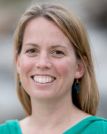
Mary Hunsicker Northwest Fisheries Science Center, NMFS, NOAA, USA
Dr. Mary Hunsicker is a research ecologist at the National Oceanographic and Atmospheric Administration’s (NOAA) Northwest Fisheries Science Center (NWFSC) in Newport, Oregon. She also holds a courtesy faculty position in the College of Earth, Ocean, and Atmospheric Sciences at Oregon State University. Mary’s research interests focus largely on understanding the effects of climate variability and change on species distributions, food web interactions, and community dynamics, and on advancing the science of ocean tipping points. Some of her recent research efforts include co-leading collaborative projects that aim to quantify thresholds that may be useful for informing ecosystem-level reference points and to identify pathways for the uptake of threshold information in fisheries management. She and her colleagues are also developing indicators that can be used to track and forecast changes in ecosystem state in effort to provide early detection of ecosystems shifting into a novel state. Mary co-chaired the PICES WG36 on Common Ecosystem Reference Points (CERP) across PICES Member Countries. She is also a co-chair of the ICES CERP working group.
Cumulative anthropogenic impacts on key Arctic species
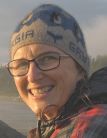
Nadja Steiner Fisheries and Oceans Canada
Dr. Nadja Steiner is a senior scientist with the departments of Fisheries and Oceans (DFO) and Environment and Climate Change (ECCC) in Canada. She develops and analyses coupled ocean-ice-ecosystem models for Arctic marine ecosystems, Sulphur and carbon cycles. This includes evaluations of environmental drivers such as ocean acidification, sea-ice retreat, and increasing temperatures to help understand marine ecosystem responses to climate change and their impacts on ecosystem services in general and Inuit subsistence harvesting specifically. She is a member of the Arctic Monitoring and Assessment Program (AMAP) Climate Expert Group and has been a contributing author to several AMAP assessment reports. Nadja Steiner also co-chairs the international expert community on Biogeochemical Exchange Processes at Sea-Ice Interfaces (BEPSII), previously a Scientific Committee of Ocean Research (SCOR) working group and the new SCOR working group on Coupling of ocean-ice-atmosphere processes from sea-ice biogeochemistry to aerosols and clouds (CIce2Clouds). She is an adjunct professor at the School of Earth and Ocean Sciences, University of Victoria.
Using Management Strategy Evaluation to establish robust fishery management in a changing ocean
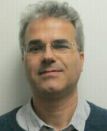
Jose De Oliveira Centre for Environment, Fisheries and Aquaculture Science (CEFAS), UK
José De Oliveira is Head of International Fisheries Methods Development and Principle Adviser at Cefas with a long record of experience with fish stock assessments, management strategy evaluation and providing fisheries management advice. He has chaired several ICES working groups and workshops, including on conducting MSEs for five jointly-management North Sea stocks and on the development of MSE Guidelines. He developed one of the earliest examples of a multi-stock MSE for commercial fisheries in the early- to mid-1990s when he worked on the small pelagic sardine-anchovy complex off the coast of South Africa. He was invited as a key-note speaker and panellist for the subtheme “Management Strategy Evaluation & Harvest Strategies” at the World Fisheries Congress in 2021.
Emerging challenges in socio-ecological systems brought about by climate-related ecosystem changes and how to equitably manage them
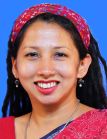
Samiya Selim University of Liberal Arts Bangladesh
Samiya Selim is an Associate Professor and the Director of Center for Sustainable Development at the University of Liberal Arts Bangladesh (ULAB). She is a marine social scientist and specializes in interdisciplinary areas of social-ecological systems – sustainability science, climate change adaptation and resilience, and the science-policy interface. In the past 10 years, Samiya has worked in UK and Bangladesh, where her work focused on interdisciplinary research around climate resilience in coastal regions, circular economy, nature conservation and mobilizing communities to bring about sustainable behavioral change in daily life. At present, she is doing a part time Postdoc at the ZMT Leibniz Centre for Tropical Marine Research, Germany on resolving marine conflicts. Her current work focuses on ensuring equity in small scale fisheries, achieving sustainable development goals, ecosystem-based adaptation and sustainable livelihoods. Samiya has published several peer reviewed articles including the first book on achieving the Sustainable Development Goals relating to the environment in Bangladesh. She is the country coordinator of Vulnerability to Viability (V2V): Global Partnership for Building Strong Small-Scale Fisheries Communities funded by the Government of Canada SSHRC. She is also CO-Chair of the Integrated Marine Biosphere Ecosystems Research (IMBeR) Human Dimensions Working Group and Chair of the Interdisciplinary Marine Early Career Network (IMECaN).
Beyond blue carbon: Ocean-based carbon dioxide removal (CDR) approaches

Sarah Cooley Ocean Conservancy, USA
As Director of Climate Science at Ocean Conservancy, Sarah combines her science and communication skills to educate and engage decision-makers and stakeholders from every political perspective on ocean acidification, identifying ways that different groups can take action. Her goal is to show that this issue is relevant and impacting people today in order to gain long-term support to protect communities, cultures and livelihoods from the threat of ocean acidification.
Sarah is currently a Coordinating Lead Author on Working Group II of the IPCC’s 6th Assessment Report, and chapter author on the 5th National Climate Assessment. She has also served as Review Editor on the 4th National Climate Assessment, and Lead Author on the 2nd State of the Carbon Cycle Report, as well as the author of dozens of peer-reviewed scientific journal articles in high-impact journals including Science and Nature Climate Change.
More...
Ocean Acidification Research for Sustainability
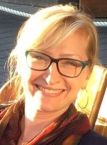
Samantha Siedlecki University of Connecticut, USA
As an oceanographer, Dr. Siedlecki focuses on coastal regions where she implements numerical simulations to investigate and identify processes within that environment responsible for the biogeochemical dynamics in both the modern and future oceans. She received her PhD from the University of Chicago where she focused on largely on theoretical systems of the ocean. As a postdoctoral fellow at JISAO at the University of Washington, she began simulating Washington and Oregon waters using realistic simulations of ocean acidification variable and hypoxia developed as part of the Coastal Modeling Group there. At JISAO, she extended that work to include seasonal (J-SCOPE) and short term (LiveOcean) forecasts. Now an assistant professor at the University of Connecticut, she has begun exploring regional climate projections of ocean conditions on both the west and east coast of the US. Through work with colleagues on the west coast as well as new collaborators part of the Early Career Faculty Innovators Program at NCAR, she is partnering with social scientists to bring these tools into decision making frameworks.
WORKSHOPS INVITED SPEAKERS
The Climate-Fisheries Nexus Within the UN Decade of Ocean Science for Sustainable Development: Co-Designing Actions and Solutions for a Productive, Healthy and Resilient Ocean
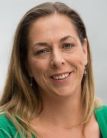
Gretta T. Pecl Centre for Marine Socioecology & Institute for Marine and Antarctic Studies (IMAS), University of Tasmania, Australia
Gretta Pecl is a Professor of marine ecology at the Institute for Marine and Antarctic Studies (IMAS), and the Director of the Centre for Marine Socioecology (CMS) at UTAS. She has deep expertise exploring the impact of climate change on natural systems, and developing adaptation options for conservation, fisheries and aquaculture. She is a Lead Author for the IPCC AR6 report, an Australian Research Council 'Future Fellow', and an associate editor for several international journals. Gretta excels at building transformative collaborations and has been prominent in UN Decade of Ocean Science programmes, actions and working groups, including co-leading Future Seas 2030 and other major international initiatives. She has a strong passion for science communication and engagement with the public.
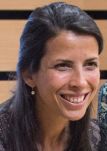
Ana Queiros Marine Life Support Systems, Plymouth Marine Laboratory, UK
Dr Ana Queirós is a senior benthic and climate change ecologist at Plymouth Marine Laboratory (UK) with 10+ yrs of research experience in the UK, EU, Eastern Africa, Australia and SE Asia. Ana is an internationally recognised expert in climate-smart approaches to marine spatial planning, leading modelling based research, and advising national and international policy, promoting effective conservation and blue growth (Queiros et al 2021, GCB, UN Global Compact 2021). She is the climate change co-lead for the ICES WG on Marine Planning and Coastal Zone Management (2020-), and the co-chair of the ICES Workshop on Climate Change Considerations in Marine Spatial Planning (2023). Ana is also an internationally recognised expert in seaweed blue carbon (Queirós et al. 2019), and is leading and advising on global programmes developing management strategies for its conservation and carbon market access. She is the 2022 winner of the Axa IM Research Award. Key current programmes include SMMR MSPACE and H2020 FutureMares. Ana’s work is highlighted in agenda setting documents, both nationally and internationally. Twitter & Mastodon - #dranaqueiros
A global ensemble of comparable marine ecosystem models to project climate risk to species and human communities
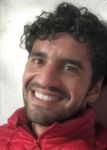
Juliano Palacios Abrantes Institute for the Oceans and Fisheries, UBC, Canada
I am a multidisciplinary scientist motivated to answer complex, real-life questions threatening the ocean and its social-ecological systems. I am particularly interested on how climate change is affecting the oceans and the management and conservation of marine resources. Currently, I hold a position as a Postdoctoral fellow at the Institute for the Oceans and Fisheries for the University of British Columbia.
Overall, my research focuses on three main areas that relate to ocean health and responsible usage of marine resources: i) the management of shared fisheries under a changing world, ii) exploring the social-ecological impacts of climate change to conservation and iii) improving fisheries management and marine conservation in Latin America. These are complex narratives which require a mix of quantitative and qualitative methods, interdisciplinary collaborations, and genuine partnerships with local not-academic institutions.
I support collaborative interdisciplinary work and I believe that all scientific work (and data) should be public and open access. As a Brazilian-Mexican citizen, I am committed to support policy-making and resource management decisions in Latin American countries with a strong interdisciplinary science. In parallel with my research, I work with different governmental and non-governmental organizations to tackle important problems facing fisheries and marine conservation in Latin America.
More...
S-CCME/SICCME Workshop on integrated modeling to identify climate change tipping points in marine ecosystems

Christian Möllmann Institute for Marine Ecosystem and Fisheries Science, Center for Earth System Research and Sustainability (CEN), University of Hamburg, Germany
Christian Möllmann is Professor of Fisheries Science at the Institute of Marine Ecosystem and Fisheries Science, University of Hamburg, Germany. He holds a PhD from University of Kiel, Germany, and conducted a Post-Doc in Copenhagen, Denmark. The research of his group addresses changes in structure and functioning of marine ecosystems under anthropogenic pressure such as climate change and fisheries exploitation. The ultimate goal of his work is to contribute to a sustainable, ecosystem-based management that considers the needs, world views and potentials of resource users and stakeholders involved in fisheries systems. While based in the natural science, his approach is increasingly transdisciplinary, involving direct interaction and knowledge creation with non-scientific individuals and groups. A major part of his present research is on regime shifts and tipping points in social-ecological systems related to fisheries.
Contact us if you have any problems.
Contact us if you do not receive an email.
Contact us if you have any problems.
-
Confirm your presentations and attendance
(financial support applicants who are still waiting for grant notifications, confirm presentations and attendance when you receive grant notifications). -
Confirm your financial support acceptance
(applicants who are still waiting for grant notifications, confirm when you receive grant notifications).
-
Discounted Registration Fee
(extended from Jan. 15, 2023)
- Discounted Registration Fee
- Abstract submission
- CV and Financial support application
